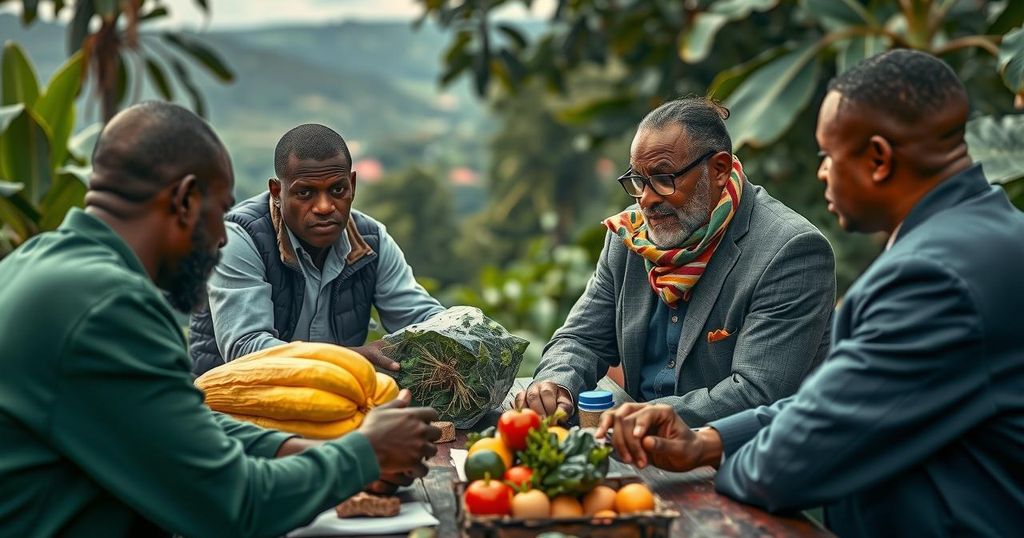The FAO Deputy Director-General, Beth Bechdol, and DRC Prime Minister Judith Suminwa Tuluka have engaged in high-level talks aimed at improving food security and resilience within the DRC, focusing on collaborative strategies to combat hunger amid ongoing conflict. With about 25 million people at risk, FAO’s initiatives will concentrate on supporting livelihoods for displaced populations and fostering agricultural sustainability.
High-level discussions focused on enhancing food security and resilience have taken place between the Food and Agriculture Organization (FAO) Deputy Director-General Beth Bechdol and the Prime Minister of the Democratic Republic of the Congo (DRC), Judith Suminwa Tuluka. The meeting represents a crucial component of the FAO delegation’s aims to collaborate effectively with local authorities in combating food insecurity and fostering resilience, especially in regions afflicted by ongoing conflict. Prime Minister Tuluka voiced her gratitude for FAO’s robust support and commitment to their shared objectives.
The FAO delegation’s itinerary comprises prominently advocated partnerships targeting urgent agricultural interventions within the DRC. With an alarming projection that nearly 25 million individuals, or approximately a quarter of the DRC’s population, are confronting hunger, the focus remains on actionable strategies to address these pressing needs. According to the latest food security analysis, an estimated 3.1 million people are expected to face an emergency level of food insecurity by December 2024, underscoring the gravity of the situation.
Emphasizing the necessity for a holistic humanitarian approach, Deputy Director-General Bechdol highlighted the FAO’s efforts toward advancing livelihood activities at Internally Displaced Persons (IDP) sites. Investments in agricultural initiatives are crucial for minimizing reliance on humanitarian assistance and fostering long-term self-sufficiency. During the tour, Bechdol visited the Rusayo 2 IDP Camp in Goma, witnessing the challenges over 30,000 displaced persons face, and the initiatives aimed at providing essential resources such as seeds, tools, and livestock to improve food production.
Recognizing that approximately 70 percent of the DRC’s populace relies on agriculture for sustenance, the FAO’s collaborative programs are integral in rebuilding the livelihoods of vulnerable communities, particularly in conflict-stricken areas. The emphasis on resilience-oriented interventions underlines the importance of targeted international efforts to combat the underlying causes of food insecurity. Bechdol’s visit reflects the ongoing commitment of the FAO to work collaboratively towards sustainable agricultural development in the DRC.
The Democratic Republic of the Congo faces severe food insecurity challenges, primarily stemming from ongoing conflicts that disrupt agricultural systems. With a significant portion of the population relying on agriculture, herding, and fishing for their livelihoods, the need for effective intervention is critical. The FAO’s collaboration with national authorities aims to enhance food support and resilience mechanisms to alleviate hunger and promote self-sustainability within vulnerable populations, especially in the eastern regions.
In conclusion, the high-level discussions between the FAO and the DRC government highlight the urgent need to address food insecurity through sustainable agricultural practices and support for displaced populations. With millions at risk of acute hunger, the FAO’s initiatives aim to foster resilience and reduce dependency on humanitarian aid. The collaborative efforts outlined will be crucial in rebuilding livelihoods and promoting food security in the DRC.
Original Source: www.fao.org






